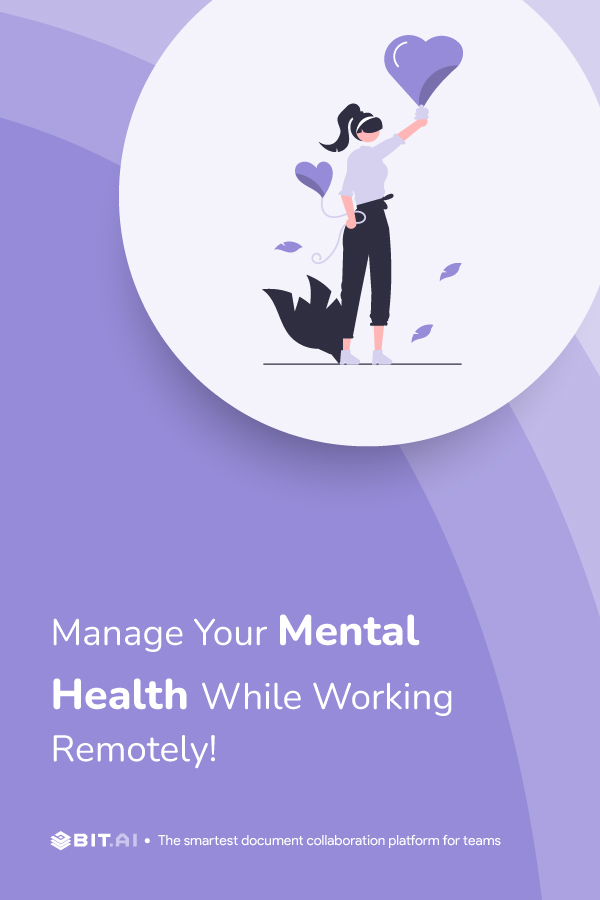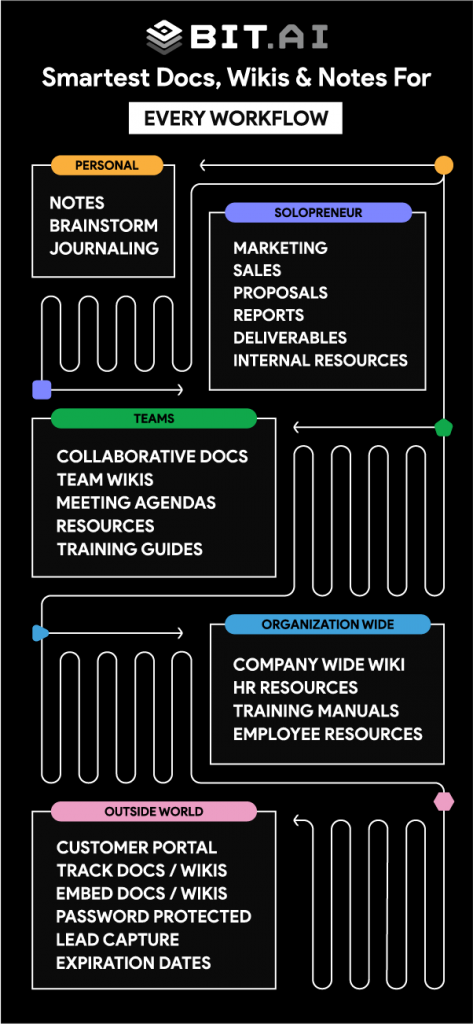As the famous quote by American Philosopher Ralph Waldo Emerson goes, “The first wealth is health.” The COVID-19 pandemic has caused a seismic shift in how we work, with the vast majority of us logging in from our living rooms, kitchens, or bedrooms. While working remotely has its perks, such as no more commutes and the freedom to work in your pajamas, it also comes with its fair share of challenges.
The American Psychological Association has reported that 67% of adults have been experiencing moderate to high-stress levels during the pandemic. We need to prioritize our mental health, especially when working remotely. Juggling work and home life demands can be tricky, and it’s easy to feel like you’re drowning in an endless sea of emails and Zoom calls.
With the distractions and challenges of home life, it is easy to lose track of work-life boundaries and feel overwhelmed. A healthy work-life balance ensures we have the time and energy to focus on our mental and physical wellbeing.
So, how can we manage our mental health when working remotely? What strategies can we adopt to maintain a healthy work-life balance? And most importantly, how many cups of coffee are too many during the workday?
Join me as we delve into the topic and uncover helpful tips and tricks to help you stay on top of your game while working remotely.
How Working From Home Benefits Your Mental Health?
Are you tired of commuting to work every day, getting stuck in traffic, and feeling burnt out at the end? Here’s some good news – working remotely could solve your problems! Not only does it save you time and money, but it can also positively impact your mental health. In this section, we’ll explore ways that working from home can benefit your well-being, so grab a cup of coffee and get ready to learn!
First of all, let’s take a look at some numbers. According to a survey conducted by FlexJobs, 77% of employees believe that remote work would boost their mental health, and 84% of employees say they feel happier when they can work from home.
And it’s not just employees who are in favour of remote work. 83% of employers believe their shift to remote work was successful. Also, a survey by Owl Labs found that 66% of employees believe that remote work is the future and that companies that don’t offer remote work options will struggle to attract and retain top talent.
So, there you have it. Working remotely can benefit your mental health in several ways, and it’s a trend that’s not going away anytime soon.
But what exactly makes working from home such a mental health booster? Here are a few reasons:
1. Flexibility
When you work remotely, you have more control over your schedule. You can take breaks when you need them, work during your most productive hours, and even nap if you’re feeling particularly exhausted.
This can significantly reduce stress levels, eliminating the daily commute, allowing for more flexible working hours, and reducing the pressure of being physically present in an office setting.
2. Improved Work-Life Balance
Let’s be real; you’ll likely be in a positive headspace when you’re comfortable and relaxed. And one of the biggest advantages of working remotely is the ability to strike a better work-life balance. With the flexibility to choose your hours, you can enjoy more quality time with family and friends, pursue hobbies and interests, and care for your physical and mental health.
While speaking of benefits, the perks of enhanced communication in a remote work setting may surprise you. Let’s jump in and explore how these factors work together to create a healthier, happier you. Continue ahead.
3. Enhanced Communication
Despite the lack of face-to-face interaction, remote work has led to improved communication among teams. Through video conferencing, instant messaging, and other online tools, remote workers can stay connected and engaged with their colleagues, even if they are located worldwide.
4. Increased Autonomy
When working from home, you’re in charge of your own space and environment. You can set up your workspace to your liking and take control of your productivity. As remote workers have more freedom to decide how they work, and when they often have more opportunities for creativity and innovation.
As you wrap up exploring how working remotely can positively impact your mental well-being, you may be left wondering about potential downsides. So, buckle up, and let’s explore the flip side of the coin in the next section! Read on.
The Side Effects On Your Mental Health When Working From Home
While working remotely may sound like a dream come true, the reality is not all sunshine and rainbows. Yes, you can avoid the morning commute and work in your pyjamas, but the side effects on your mental health can be quite daunting. Here are some of the side effects that remote working can come with:
1. Isolation
One of the most significant downsides of remote work is the isolation it can bring. You may feel lonely and disconnected from the outside world without daily interactions with colleagues. Even the most introverted of us need some social interaction to thrive.
2. Burnout
With the blurred boundaries between work and home, switching off and taking time for yourself can be challenging. The pressure to be always available can take a toll on your mental health, leading to exhaustion and a lack of motivation. Also, working longer hours, skipping breaks, and not taking time off can lead to stress and poor mental health.
Burnout is a real possibility; if left unchecked, it can severely affect your well-being. But did you know that burnout can also lead to no improvement in productivity? Keep reading to find out how to avoid this trap and maintain a healthy work-life balance while working from home.
3. No Improvement in Productivity
Contrary to popular belief, working remotely doesn’t necessarily make you more productive. In fact, without human interaction, it can be easy to lose focus and procrastinate.
On top of that, home can be a distracting environment. From noisy neighbors to family members needing your attention, finding a quiet space to work can be hard. Also, it’s easy to get distracted by household chores or personal errands that need to be done.
4. Communication Barriers
While video conferencing tools have made it easier to communicate with colleagues, there are still communication barriers when working remotely. For example, reading body language or gauging someone’s tone over the phone or computer can be harder. This can lead to misunderstandings and miscommunications that can be frustrating and stressful.
5. Lack of Collaboration
Collaboration can be challenging when working remotely, especially when it comes to brainstorming and idea generation. However, some tools can help bridge the gap and make collaboration easier. One such tool is bit.ai.
Bit.ai is the world’s best document collaboration platform, allowing teams to work together on documents, presentations, and other projects in real time. By offering features like interactive documents, smart search, organized workspace, custom branding, and built-in collaboration, it has become an all-in-one solution for remote teams who need to collaborate effectively.
With bit.ai’s interactive documents, teams can create engaging and visually appealing presentations and documents that encourage creativity and innovation. This helps to break down the barriers that can stifle creativity in remote work and allows for more dynamic and collaborative idea generation.
To combat these disadvantages, making time for social interaction and setting clear boundaries between work and home life is important. And remember, even if you work from home, you can still wear professional clothes, even if it’s just from the waist up for those video calls.
Now that we’ve discussed the potential side effects on your mental health when working remotely, it’s important to consider how to mitigate these challenges and maintain your well-being. That’s where the next topic comes in: Let’s not waste any more time and get right into it!
How to Take Care of Your Mental Health When You Work From Home?
In today’s world, where capitalism seems to be the driving force behind everything, finding the right balance between work and personal life is essential. Taking care of your mental health should be a top priority, no matter how busy your schedule is. So, here are some tips and strategies that I’ve come up with just for you to help you stay mentally fit while working remotely:
1. Set Boundaries
When you work remotely, separating your work life from your personal life can be hard. Set clear boundaries for when you’re “at work” and “off the clock.” This can mean setting specific work hours, turning off your work phone and computer at the end of the day, or even creating a designated workspace. Ensure you take regular breaks throughout the day and avoid working overtime to maintain a healthy work-life balance.
2. Stay Active
Working from home often means sitting in front of a computer for long hours, which can harm your health. Make sure you take regular breaks to stretch, move your body or take a few minutes to meditate. You can even incorporate exercise into your daily routine to improve your mental and physical health. Believe me, by doing this; you’ll come back to your work feeling more refreshed and focused.
But the list does not end here; now, we’ll explore another crucial aspect of managing your mental health. So, stay tuned, and let’s explore it together!
3. Stay Connected
Working from home can be isolating, so staying connected with your colleagues, friends, and family is important. Schedule virtual coffee breaks or happy hours, or send a quick message to check in. Social connections can help you keep your spirit up and feel more supported and less lonely.
4. Take Care of Yourself
When you work from home, it’s easy to neglect self-care. Ensure you’re taking care of yourself by eating healthy, getting enough sleep, and exercising regularly. You can even schedule some “me time” each week to do something you enjoy, like reading a book or cooking your favourite meal.
Don’t forget that balancing work and life is key to maintaining good mental health when you work remotely. So, take a deep breath, put on your favorite playlist, and tackle your workday with these tips. You’ve got this!
Conclusion
Well, folks, there you have it – a list of tips and strategies for managing your mental health while working remotely. Whether you’re battling the constant lure of your bed or trying to resist the urge to snack all day, these tips will help you stay on track.
Working remotely may have perks, but it can also have pitfalls. Don’t let your job become a black hole that drains the life out of you! Take care of yourself, set boundaries, and stay connected with the most important people.
Excuse me, I’m off to practice what I preach by taking a break and doing virtual yoga because it’s the original Zoom call for your mind and body.
Further Reads:
21 Remote Work Tools & Apps For Productive Employees!
Make Your Distributed Teams Work More Efficiently With Bit.ai!
Contract Workers Vs Employees: Learn About The Major Differences!
Remote Collaboration Guide & Tools For Distributed Team
The Benefits & Drawbacks of Working Remote (WFH)
17+ Remote Work Stats That Will Shock You!

Related posts
Bit.ai | Watch to Learn More
What is Bit.ai?
Bit.ai is an innovative AI-driven knowledge and Document Managment suite designed to empower knowledge workers by streamlining the creation of, documents, wikis, and notes. With an intuitive interface and seamless integration, Bit.ai acts as a versatile assistant to help you collaborate, generate, organize, and visualize your ideas effortlessly. Whether you are drafting a report, managing a project, collaborating with your team or clients, or brainstorming new concepts, Bit.ai brings intelligence and creativity to every aspect of your work process.


